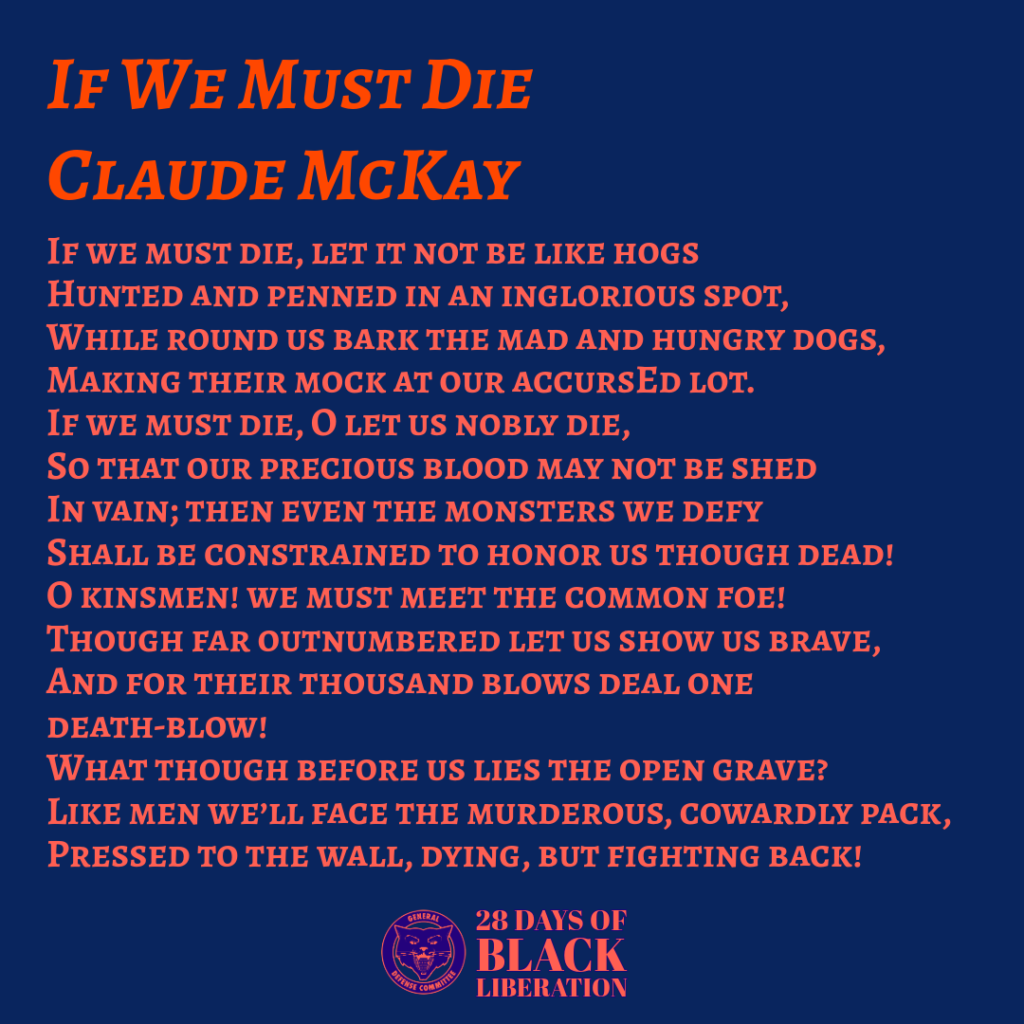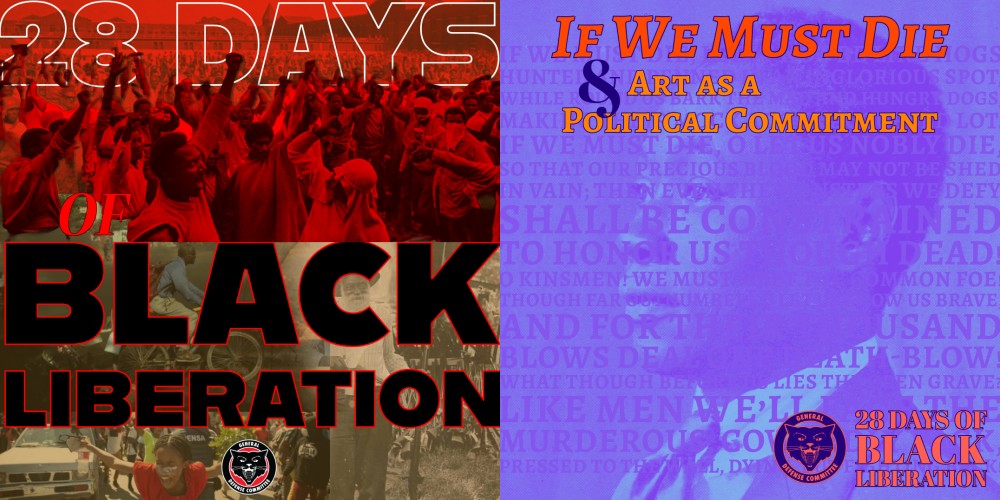28 Days of Black Liberation 2025 series
If We Must Die was written by Claude McKay in 1919 in response to the mob murders of the Red Summer. He published it in the July 1919 issue of The Liberator, a communist magazine whose editor was a good friend of his. The poem is often marked as the beginning of the Harlem Renaissance.

Claude McKay worked for the Pennsylvania Railroad during the Red Summer. He had newly come to America from Jamaica. During the Red Summer, he and his Black coworkers saw white supremacist mobs as they travelled on the railroads. McKay said that the poem exploded out of him that summer.
The legacy of If We Must Die is vast, inspiring Black radicals and revolutionaries for over a century. During the Attica uprising, prisoners read and distributed copies of the poem amongst themselves. The poem was read to a crowd of activists during the civil rights movement after Dr. Martin Luther King, Jr. was assassinated. Assata Shakur recited the poem as a way to drown out the verbal abuse she experienced from guards in prison. The legacy of this poem echoes to today in Palestinian poet, educator, and martyr Refaat Alareer’s poem If I Must Die.
If I must die,
you must live
to tell my story
to sell my things
to buy a piece of cloth
and some strings,
(make it white with a long tail)
so that a child, somewhere in Gaza
while looking heaven in the eye
awaiting his dad who left in a blaze—
and bid no one farewell
not even to his flesh
not even to himself—
sees the kite, my kite you made, flying up above
and thinks for a moment an angel is there
bringing back love
If I must die
let it bring hope
let it be a tale
If We Must Die is an example of the power and importance of art as a political tool in liberation movements. Black artists during the Harlem Renaissance and Black Power movement of the 60s were organizers and activists who made art to advance the liberation of their people. They rejected the capitalist idea of art as a product and of artists as a distinct group unto themselves. They saw art as part of their overall political commitment to struggle toward liberation.
“Poetry is a political act because it involves telling the truth.”
June Jordan
“What is the artist’s job? To make war. The artist’s job is unrelenting war on evil…What is the artist’s role? To struggle. To tell the truth…Art is an ideological reflection of the world.”
Amiri Baraka
“The artist must first elect to fight for freedom or for slavery. I have made my choice. I had no alternative.”
Paul Robeson
“…When poems stop talking about the moon and begin to mention poverty, trade unions, color lines, and colonies, somebody tells the police.”
Langston Hughes
During the month of February GDC honors the legacy of the Black Liberation Struggle. Our program – 28 Days of Black Liberation – seeks to highlight the history, take inspiration, and draw lessons from the Black freedom struggle. The GDC sees the Black Proletariat as the vanguard of the class struggle in the United States – from early rebellions led by enslaved African people to the George Floyd Rebellion. The 28 Days of Black Liberation is a chance to reflect on this history of resistance and continue the revolutionary struggle against white supremacy, capitalism, and imperialism. Each week we will focus on one event/movement that we think is critical. We will also have events each week to allow for collective discussion and deepening our understanding and revolutionary commitment.

